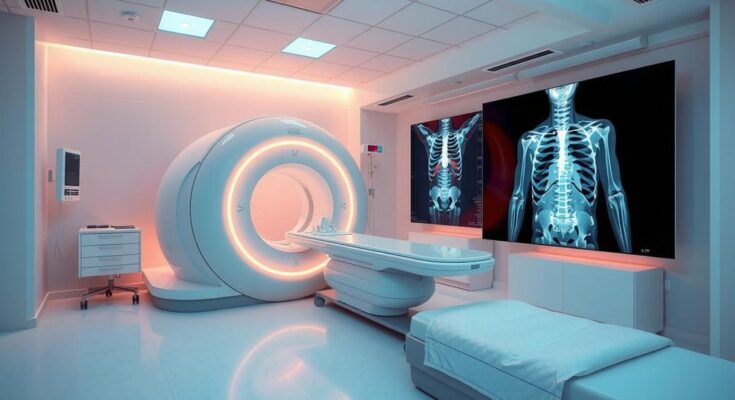Tunisia is developing AI software to assist doctors in interpreting X-rays and MRIs more efficiently. This initiative, guided by Health Minister Mustapha Ferjani and led by engineers including Karim Beguir, aims to enhance disease diagnosis and improve patient care, especially in remote areas. New telemedicine regulations support this advancement, which is expected to alleviate radiologists’ workloads and increase healthcare accessibility.
Tunisia is advancing its healthcare capabilities by developing artificial intelligence (AI) software designed to assist medical professionals in the rapid and accurate interpretation of X-rays and MRIs. Health Minister Mustapha Ferjani emphasized that this innovation aims not only to enhance the detection and diagnosis of diseases but also to significantly improve patient care in the region.
A dedicated team of Tunisian engineers, led by Karim Beguir, the founder of InstaDeep—an AI-focused company—is collaborating on this initiative. These engineers are voluntarily contributing their expertise to produce a fully Tunisian-made AI system that will enable doctors to analyze medical images efficiently, potentially alleviating the workload faced by radiologists.
Moreover, this advanced technology will facilitate remote consultations by allowing hospitals lacking radiology departments to submit images online for evaluation by specialists. This feature is particularly beneficial for patients in remote areas, ensuring they have access to necessary medical care.
In addition, the Tunisian government has implemented new legislation regulating telemedicine practices, thereby simplifying the utilization of technology in remote healthcare services. Efforts are also underway to provide incentives to attract more radiologists to the public health sector.
Minister Ferjani acknowledged the contributions of radiologists at La Rabta Hospital, who currently support other healthcare facilities by interpreting diagnostic images and training fellow physicians. The forthcoming AI system is anticipated to broaden such collaborative efforts across the nation, enhancing the overall efficiency and accessibility of medical imaging services.
In conclusion, Tunisia’s development of AI software for interpreting medical images represents a significant leap forward in healthcare innovation. The initiative, led by a team of committed engineers and supported by governmental reforms, aims to improve diagnostic accuracy and support patient care, particularly for those in underserved areas. As such, this project stands to benefit the healthcare landscape of Tunisia profoundly.
Original Source: globalsouthworld.com




